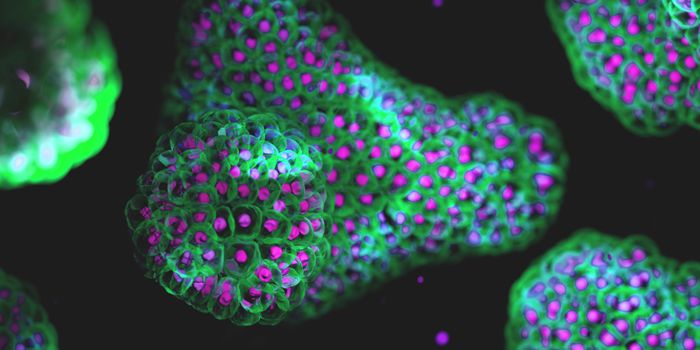Weight Loss is Linked to Changes in the Brain & Gut Microbiome
Over one billion people in the world can be classified as obese, putting them at increased risk for a variety of diseases including diabetes, cardiovascular disorders, and some types of cancer. It's thought that many of today's highly processed foods, which often contain high levels of fats and sugars, play a significant role in this public health problem. Weight loss is extremely challenging too. There is a complicated interplay between hormones, neural signaling in the brain, and the physiology of the gut, which is also home to trillions of microbes.
Scientists have now examined the impacts of one type of weight loss called intermittent energy restriction (IER), in which participants oscillate between days of eating normally and days of relative fasting. The study suggested that an IER diet can alter the relationship between the brain and the gut microbiome, which is known to have an effect on many aspects of human biology. The findings from this small study have been reported in Frontiers in Cellular and Infection Microbiology.
"The observed changes in the gut microbiome and in the activity in addiction-related brain regions during and after weight loss are highly dynamic and coupled over time," said senior study author Dr. Qiang Zeng, a researcher at the Health Management Institute of the PLA General Hospital.
In this work, the researchers analyzed samples of blood and stool, and functional MRIs to assess the changes that accompanied IER in 25 obese Chinese women and men. These participants had an average age of 27 years and a BMI that ranged from 28 and 45.
While scientists are still working to define what makes up a healthy microbiome, certain microbial species are known to be beneficial, while others can cause harm; diversity is also a known feature of a health gut microbiome. "In contrast, an abnormal gut microbiome can change our eating behavior by affecting certain brain areas involved in addiction," noted study co-author Dr. Yongli Li of the Department of Health Management of Henan Provincial People's Hospital.
Each study participant ate a diet that was personalized for them by a dietician. The study volunteers began with a 32-day period in which their caloric intake was slowly reduced to one-quarter of their daily recommended level. In the next 30-day phase, the participants were provided with a list of recommended foods. Any woman who correctly completed this diet consumed 500 calories every day and every man who followed the recommendations properly ate 600 calories.
The average weight of study volunteers had decreased by 7.6 kilograms, or 7.8 percent, by the end of the study. Both body fat percentage and waist circumference were reduced. Blood pressure, blood glucose, and total cholesterol had all decreased in the study participants, along with the activity of certain crucial liver enzymes.
The study suggested that IER can help reduce the risk of obesity-related health problems such as hypertension, hyperlipidemia, and liver dysfunction. There were also changes in parts of the brain that are related to addiction and appetite. In the gut microbiome, there was a significant increase in the levels of several species including Bacterokles uniformis, Faecalibacterium prausnitzii, and Parabacteroides distasonis, while Escherichia coli levels dropped.
Additional work indicated that high levels of E. coli, Coprococcus comes, and Eubacterium hallii bacteria have an inverse connection to activity in the left orbital inferior frontal gyrus region of the brain. This area is known to play an important part in executive decisions, including the will for weight loss.
Increases in P. distasonis and Flavonifractor plautii levels, however, were associated with the increases in brain activity in regions that have previously been linked to attention, emotions, motor inhibition, and learning.
The study indicated that weight loss is connected to changes in the brain and microbiome. However, this study did not show whether one causes the other, or they are simply correlated. Additional work will be needed to elucidate the nature of their relationship.
"The next question to be answered is the precise mechanism by which the gut microbiome and the brain communicate in obese people, including during weight loss," said study co-author Dr. Liming Wang of the Health Management Institute. "What specific gut microbiome and brain regions are critical for successful weight loss and maintaining a healthy weight?"
Sources: Frontiers, Frontiers in Cellular and Infection Microbiology









